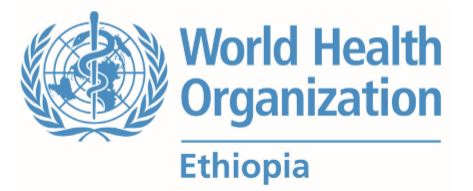In a landmark event, the World Health Organization (WHO) organized a ‘historical’ workshop on Health Technology Assessment (HTA) for selected member states in the African region.
Held in Addis Ababa, Ethiopia, from December 12th to 14th, 2023, with the theme ‘Health Technology Assessment for Priority Setting to Achieve Universal Health Coverage,’ the workshop aimed at tackling critical issues related to the systematic evaluation of healthcare technology and its role in decision-making processes.
The workshop also envisaged helping the establishment and institutionalization of HTA in the health systems of the selected countries, sharing experiences and approaches for capacity building, disseminating relevant guidance documents to promote the use of HTA, and ultimately helping countries to develop their roadmaps for progressing towards implementation of HTA concepts and principles.
The workshop emphasized that Health Technology, including medicines, medical devices, vaccines, and health interventions, plays a crucial role in health promotion, disease prevention, diagnosis, treatment, rehabilitation, and palliative care.
The essential role of HTA in evaluating the properties, effects, and impacts of healthcare technology to inform policy decisions was also deliberated. The workshop also discussed the vital role of HTA in achieving UHC by ensuring the efficient and equitable allocation of healthcare resources.
"The main purpose of HTA is to inform policy decision-making in health care, and thus improve the uptake of cost-effective new technologies and prevent the uptake of technologies that are of doubtful value for the health system,” Dr. Nonhlanhla Dlamini, Acting Representative of WHO Ethiopia stated while opening the workshop.
The World Health Assembly Resolution WHA67.23 on HTA in Support of Universal Health Coverage (UHC) urges member states to consider establishing national health technology assessment systems, encouraging the systematic utilization of independent health intervention and technology assessment in support of UHC to inform policy decisions.
A multidisciplinary approach is involved in HTA to generate evidence for prioritizing, selecting, introducing, distributing, and managing health technology.
Challenges identified during the workshop include limited use of evidence in policymaking, low awareness, insufficient local institutions with HTA capacity, limited technical expertise, and a lack of local data and appropriate tools.
HTA has been adopted as a means of priority setting across high-income countries (e.g., UK, Australia, and Canada) and upper-middle-income countries (e.g., Thailand, Brazil, and Mexico), while other emerging economies such as India and China are establishing their national institutions.
However, "low and middle-income countries, especially African nations, with limited healthcare budgets, are struggling to prioritize healthcare needs and allocate their investments effectively,” Dr. Dlamini said adding “As per the requests from countries WHO is supporting and providing guidance and support for structures and systems to establish HTA processes and policy frameworks”.
“WHO Ethiopia is also supporting the Ministry of Health of Ethiopia and it’s agencies in developing the HTA Institutionalizing Road map, defining essential health service package, updating national lists of essential medicines and medicines for health insurance, and strengthening medical product regulatory system,” the Representative said and reiterated that the country office will continue supporting Ethiopia in implementing HTA in priority setting for public health.
"Informed decision-making comprises issues surrounding coverage and reimbursement, pricing decisions, clinical guidelines and protocols, and medical device regulation," highlighted the workshop participants.
As a follow-up to the workshop, three countries- Burkina Faso, Ethiopia, and Malawi will receive support to implement their HTA roadmaps, with field visits organized to assist in developing and adapting materials on HTA for training purposes.
The workshop not only raised awareness but also fostered knowledge, guiding countries to progress toward implementing HTA concepts and principles. This signifies a crucial step in empowering the countries to enhance their capacity for health technology assessment, contributing to evidence-based decision-making and improved healthcare outcomes.
A total of 40 high-level health professionals and officials drawn from Algeria, Burkina Faso, Cote d’Ivoire, Ghana, Senegal, Sierra Leone, Malawi, Zambia, Zimbabwe, Rwanda, and Ethiopia, attended the workshop which was facilitated by experts from the three tiers of WHO, Africa CDC and Kenya Medical Research Institute (KEMRI).
Distributed by APO Group on behalf of World Health Organization (WHO) - Ethiopia.
Latest Stories
-
Fuel shortage hits Sissala East and West Districts
7 minutes -
President Mahama orders immediate probe into 2020 and 2024 election fatalities
11 minutes -
Ken Thompson applauds John Mahama’s initial ministerial appointments
19 minutes -
Shatana drops new single “Monicitamol” to inspire women
31 minutes -
Mahama calls on party supporters, and others fomenting trouble to act responsibly
32 minutes -
We’ll have 2 holidays for Eid al-Fitr celebrations this year – Mahama
38 minutes -
Effiduasi market women hit streets in demand for access to stalls after paying contractor
59 minutes -
GNAT urges gov’t to prioritise education sector challenges just as it’s tackling energy issues
1 hour -
Free SHS can’t continue; parents must pay for feeding, accommodation – NAGRAT President
1 hour -
Mahama demands update from IGP on election-related deaths in 2020, 2024
1 hour -
It’s a boy! Moses Bliss and wife welcome first child
1 hour -
Motorists stranded as fuel shortage hits Damongo
1 hour -
Fuel shortage hits Yendi and Damongo, residents appeal for swift intervention
2 hours -
Prof Bokpin endorses Finance minister-designate’s push for additional IMF funding
2 hours -
Sammy Crabbe criticises NPP leadership for party’s defeat; eyes chairmanship in 2026
2 hours

